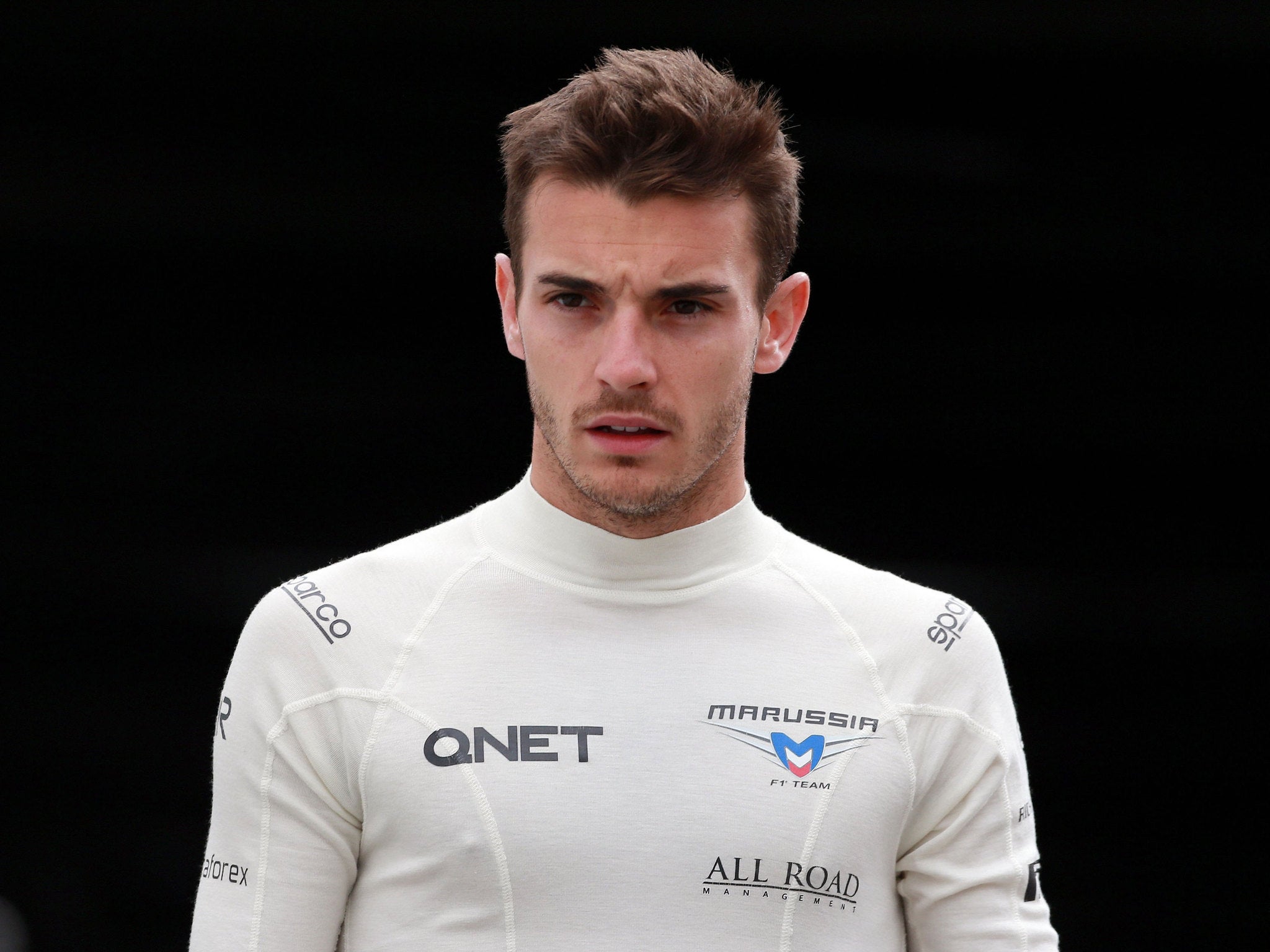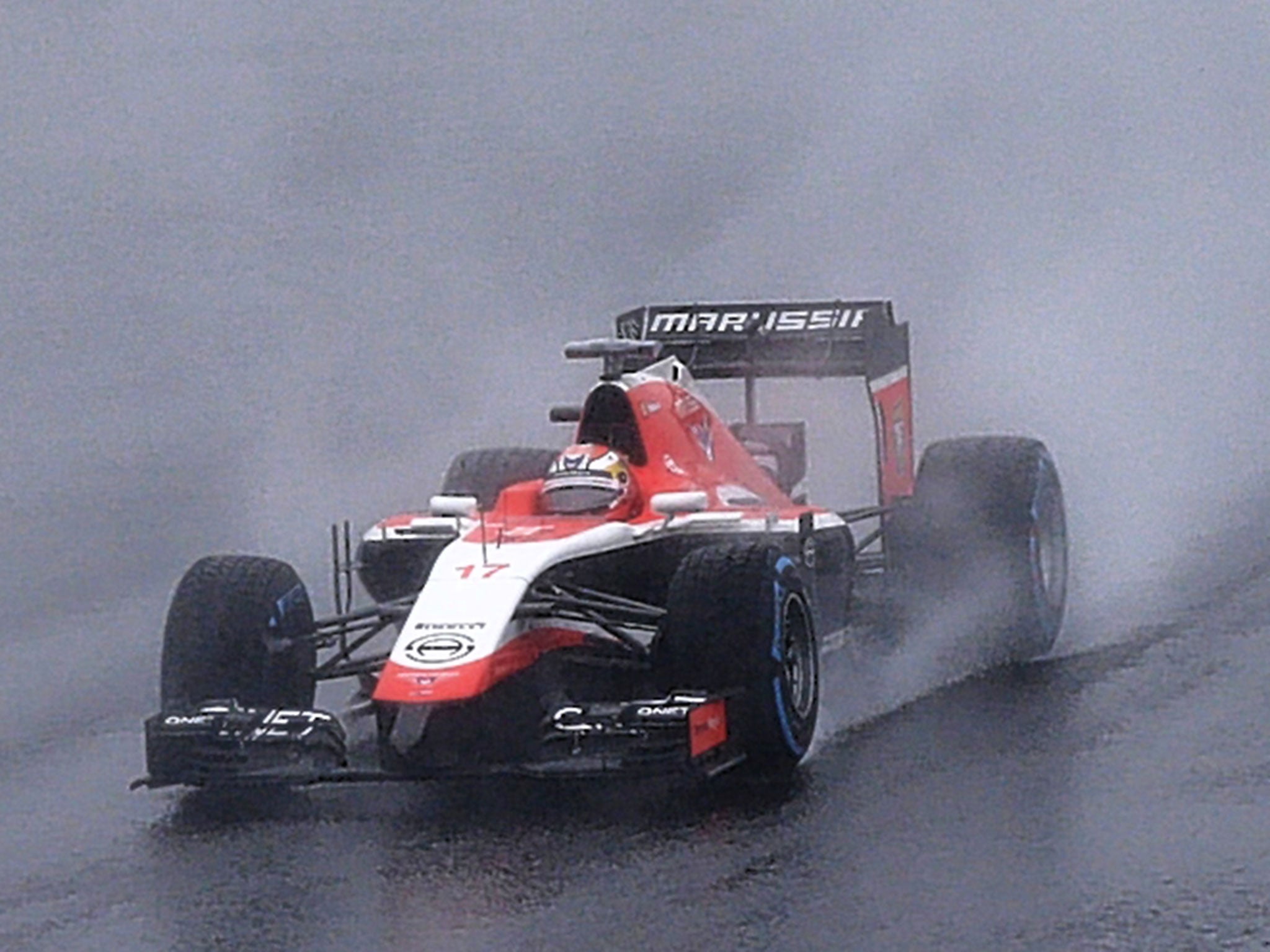Jules Bianchi crash prompts changes to the F1 calendar that will see five races start an hour earlier
The season-opening Australian will start an hour earlier to reduce the threat of poor visibility that contributed to Bianchi's horror crash last season

Five races of Formula 1’s 2015 calendar have had their start time brought forward in an effort to prevent racing in similar conditions to that of seen when Jules Bianchi suffered his serious accident at last year’s Japanese Grand Prix.
Following recommendations made from the investigation into Bianchi’s crash at Suzuka, the season-opening Australian Grand Prix will begin an hour earlier when the race gets underway on 15 March. The decision is a direct result of the report that advised races should not start within four hours of dusk or sunset.
It’s a measure that has been taken to avoid the darkening conditions that were witnessed in Japan, although the extreme wet weather that day was a key factor in Bianchi’s accident.
Bianchi remains unconscious at his family home in France, although he is breathing unaided after being brought out of the artificial coma that he was placed in following the crash. The latest statement from the Bianchi family said that the 25-year-old former Marussia driver remains unconscious.
The other races that have been affected include Malaysia, China, Japan and Russia.

The so-called fly-away races have started later and later in recent years in a bid to increase viewers in Europe. Avid fans would generally get up in the middle of the night to watch races, but the later starts have meant an early morning wake-up in European countries that has increases the number of television viewers in the continent.
The accident panel, set up by the sport’s governing body, the FIA, has also recommended that the evening and night races in Singapore, Abu Dhabi and Bahrain will not be affected given the tracks are floodlit and can be broadcast at prime time slots in Europe.

One race that has been repeatedly affected is the Malaysian Grand Prix, which tends to encounter heavy rain in the late afternoon just as the race edges towards its finale. More often than not, the post-race show features presenters doing their best to avoid a torrential downpour – if it hasn’t already hit during the race.
Sepang International Circuit CEO Razlan Razali admitted last week that he would be happy to see the race start earlier in the day due to the tropical storms, while the move is said to have been welcomed by the drivers.
Join our commenting forum
Join thought-provoking conversations, follow other Independent readers and see their replies
Comments
Bookmark popover
Removed from bookmarks